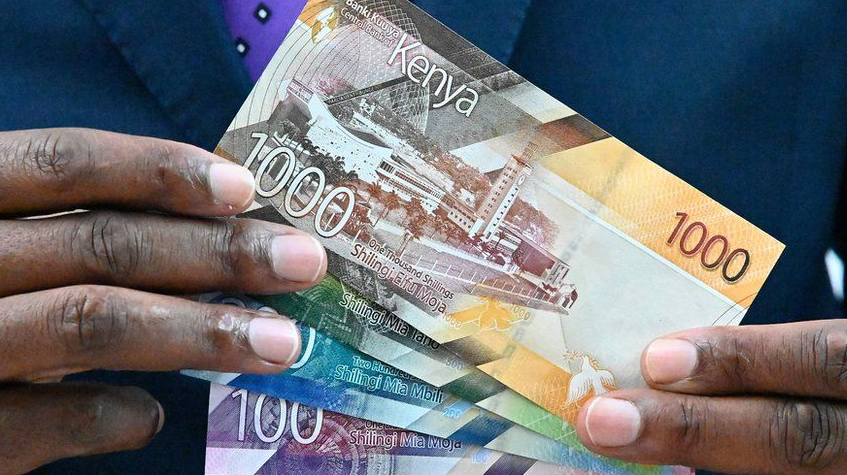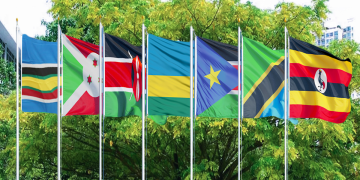- The Daily Brief, by The Kenyan Wall Street
- Posts
- Finance Bill 2024 Might Live Again, Starlink Rattles Safaricom
Finance Bill 2024 Might Live Again, Starlink Rattles Safaricom
Here's what you need to know to start your week


Direct to your inbox every Monday at 9am (EAT)
What's Inside

Last week, the NSE secondary bond marketplace crossed the KShs. 1 trillion mark year to date.
State to Revive Parts of Finance Bill 2024 to Raise KShs. 150bn

Late last week, National Treasury CS John Mbadi said that the plan to revive the ‘progressive’ parts of the controversial Finance Bill 2024 is still on.
Despite earlier statements, CS Mbadi said the plan would not include the Eco-Levy clause, which was designed “to ensure that manufacturers and importers …pay for the negative environmental impacts” and would have raised the price of critical goods.
It would also not include new tax measures on motor vehicle circulation, taxing bread, sanitary pads, money transfers and transactions.
Among the most prominent parts that the government wants to revive is extending the amnesty programme which expired at the end of June and netted KShs. 43bn.
“We may not package it as Finance Bill because of Kenyans phobia of Finance Bills, and we don’t have exact time for re-introduction as we have to involve different departments of the government, but we have to keep on legislating,” CS Mbadi said during a TV interview.
In addition to tax amnesty, the CS hinted at a revival of clauses on pension, excise duty increases on imported sugar among other areas which he cumulatively said would raise Ksh150 billion to support government operations.
Stay updated on this and other stories on The Kenyan Wall Street.
In today’s world, paradoxically, it is the boldest action that is often the safest. Remaining where you are in a world that is changing so rapidly is, in fact, the most dangerous of all places to be in.
-Hakeem Belo-Osagie.
Upcoming Events

AfricaArena Nairobi Summit- Africa Climate Tech Week: Sept 1-4, Nairobi
Stand-Out Executive Ladies Retreat: Aug 31, Nairobi
Africa Fintech Summit: Sept 4-6, Nairobi
2nd Annual Women Who Build Africa (WWBA) Assembly: Sept 5, Nairobi.
Angaza Forum: Oct 16-18, Nairobi
Starlink Rattles Safaricom

Last week, Safaricom confirmed to media houses that a widely circulated letter where it asked the Communications Authority of Kenya (CAK) to clamp down on satellite providers such as Starlink was legitimate.
In the letter signed by acting Chief Corporate Affairs Fred Waithaka, the leading telco wants the regulator to consider limiting satellite service providers to Kenya, and forcing them to “an agreement with an existing local licensee.”
In such a structure, satellite providers would provide infrastructure to local internet service providers (ISPs) such as Safaricom, and have a physical presence of some sort in the country.
Safaricom’s discomfort with the swift uptake of Starlink kits, which is still minute but growing, mirrors those of traditional telcos elsewhere.
“Satellite coverage inherently spans multiple territorial borders and in doing so has the potential to illegally provide services and cause harmful interference within the territorial borders of the Republic of Kenya,” Waithaka said in the letter dated 5th July.
Why it Matters
Safaricom’s letter leaked on the same week that Starlink announced plans for rental kits in Kenya in the company’s latest bid to drive uptake in the country. Although there are still just a few thousands of Starlink users, far below Safaricom’s overarching dominance in the telco space, it is clear that the company sees satellite providers as a real threat.
Starlink’s effect on local ISP markets has been the subject of some controversy in many markets it is now present in. Its plans to introduce Direct to Device service, which would allow direct smartphone internet connectivity, have also rattled traditional telcos. It is possible that Safaricom is jumping the gun in asking for more stringent regulation of a competitor with a single focus and a still nascent market, or laying the groundwork for such rules for satellite providers.
The regulator’s, and possibly parliament’s, response will be indicative of whether the prevailing sentiment is pro-innovation, which could eventually provide consumers with more choices, better prices, and superior services. Or pro-investment, which in this case would mean ringfencing the local market until local ISPs get their products in order and recoup their investments.
Headlines you might have missed
Interview of the Week
n this second episode of Season Two of the Investing Like an Executive series, Andrew Barden sits down with Kopano Bolokwe, the Acting CEO of the Botswana Stock Exchange, to learn more about Botswana's bourse
Have a great week!






